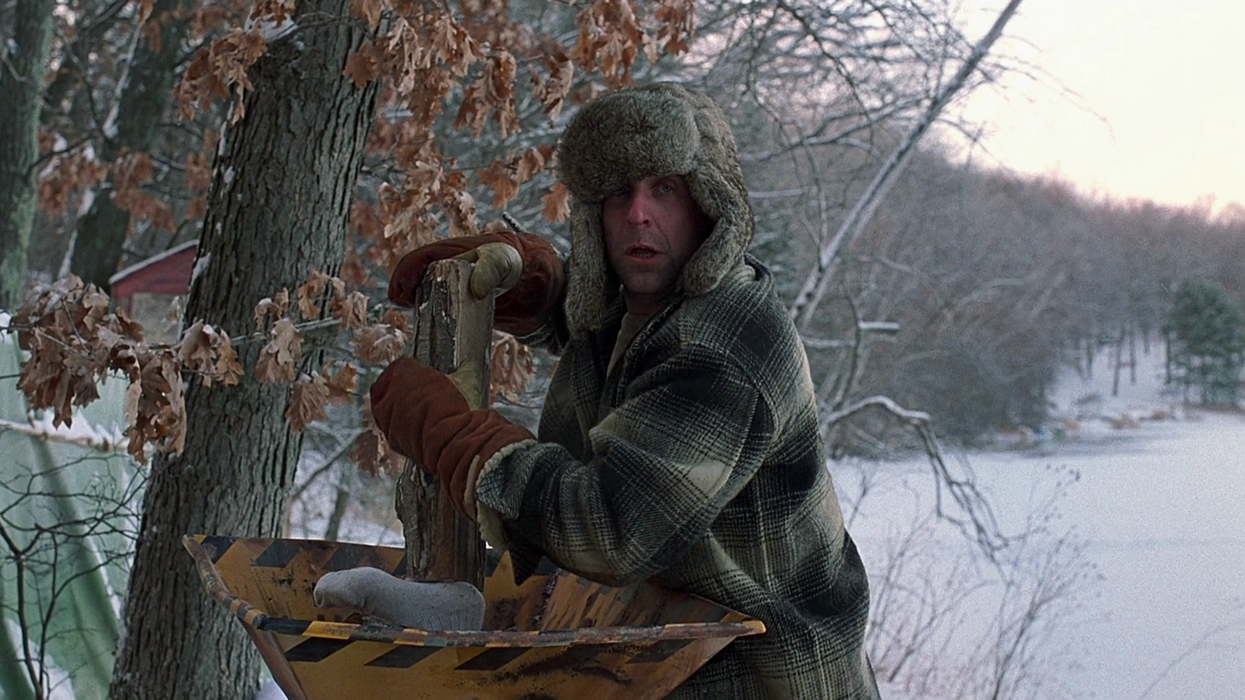If you tried to describe the work of directors Joel and Ethan Coen collectively, what would you say? Realistic, but also kind of whimsical? Dark, but weirdly funny? High-minded, but also completely morally adrift? It's nearly impossible to explain a Coen film without using multitudes of qualifiers to give your adjectives more context, but that's because it's rather difficult to nail down the cinematic qualities found in films like Miller's Crossing, Fargo, The Big Lebowski, Burn After Reading, No Country for Old Men, Inside Llewyn Davis, and the list goes on.
However, in this video essay, the team over at ScreenPrism has highlighted many trademarks of the dynamic duo to offer a pretty robust list of things you're likely to see in a Coen Brothers movie.
For many filmmakers, especially the Coens, distilling their artistic sensibilities down to a list of common practices and trademarks is either impossible or extremely limiting. In other words, you might be able to go down the list and include every single item on it in your own film, but you most likely wouldn't be able to churn out anything closely resembling a Coen Brothers film.
But that's not the point of any of this. Understanding the philosophy of a filmmaker rather than the method will not only help you learn more about the craft but also learn more about your own sensibilities as an individual artist. In other words, understanding the why's can be much more valuable than understanding the how's.
Below is a list of how's, mostly, and it's our job to figure out why the Coen Brothers approach filmmaking in this way. Why does justice always seem to be secondary to punishment? Why do their characters embody the setting of each film? Why does randomness play such a huge role in so many of their films? The answer to all of these questions is, well, who knows?
The Coens aren't big on interviews and rarely talk about this kind of thing to the public. In fact, when Ethan Coen was asked about his artistic philosophy 20 years ago he said, "I don’t have one. I wouldn’t even know how to begin." Okay, but that doesn't matter either, right? Maybe it's more about how you interpret the philosophy of a filmmaker. Maybe you see the Coens work as a knock on nihilism and a champion for humility and do-goodership, all fighting for the limited space beneath the godlike umbrella of randomness. You may do good and win...or lose. You may do bad and walk off into the sunset...or get thrown into a woodchipper. You just never know. The point is that the world is a disgusting cesspool of beauty and pain and love and hate and murders and grown men wearing jellies. It's completely horrible and completely wonderful all at once. (I think I just described a Coen Brothers movie.)

For good measure, here is the list of trademarks ScreenPrism mentions in the video essay:
- A crime gone wrong
- Punishment, not justice
- Worlds are completely random and teaming with "monsters"
- Protagonists are their own antagonists
- Unclear genre, clear tone
- Midwestern sensibility...usually
- A very clear sense of place
- Stylized dialogue
- Familiar visual language
- DP Roger Deakins
- Composer Carter Burwell
- Returning cast members
- "Remaking the same movie"
- Auteuristic partnership
- Cultural references
- Characters don't really grow or change
- It's about the journey
Are there any other trademarks you'd add to the list? What's your favorite Coen Brothers movie? Let us know down in the comments.
Source: ScreenPrism












